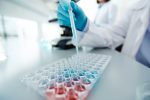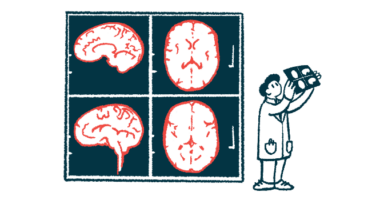NurrOn’s joint effort will advance new Nurr1-based treatments
Phase 1 clinical trial of NurrOn's therapy ATH-399A expected to begin this year

NurrOn Pharmaceuticals has partnered with South Korean HanAll Biopharma and Daewoong Pharmaceutical to continue developing its candidate therapy for Parkinson’s disease and other neurodegenerative disorders.
A Phase 1 clinical trial of its lead oral investigational therapy ATH-399A is expected to start this year. Before testing it in people with Parkinson’s disease, the trial, which received financial support from the Michael J. Fox Foundation, will test the safety of a single, oral dose in younger and older healthy volunteers. The study will also test if eating before taking ATH-399A changes the response to it. The researchers will also assess the safety and tolerability of repeated daily doses over several days.
NurrOn’s pipeline for neurodegenerative diseases, including ATH-399A, is based on targeting and activating Nurr1, a master regulator in developing and maintaining dopaminergic neurons, the nerve cells that produce the neurotransmitter dopamine that are gradually lost in Parkinson’s. Dopamine is a chemical messenger that lets nerve cells communicate and helps regulate movement, among other functions.
Nurr1 also protects nerve cells from inflammation-induced death.
Targeting Nurr1
By activating Nurr1, ATH-399A should boost dopamine production while repressing the activation of pro-inflammatory genes in microglia, the brain’s primary immune cells. This dual activation may help ease symptoms.
“NurrOn has completed the preclinical development of ATH-399A and plans to enter a Phase 1 clinical trial this year. We expect great synergy through the joint collaboration between NurrOn, HanAll Biopharma and Daewoong Pharmaceuticals, especially given their great clinical development expertise,” Deog Joong Kim, PhD, NurrOn’s CEO, said in a press release.
In a preclinical study, activating Nurr1 ameliorated behavioral defects in a rodent model of Parkinson’s, without any detectable signs of dyskinesia, or involuntary movements.
Under the agreement, the companies will combine their expertise and resources to develop ATH-399A along with other candidate therapies for Parkinson’s and other neurodegenerative diseases. Both companies participated in a Series A funding of NurrOn in 2021.
“We are excited to move into the next phase of collaboration with NurrOn, continuing to build on the partnership which was originally established in 2021. This partnership would allow us to join our resources and expertise in developing new medicines for patients with PD worldwide,” said Sean Jeong, MD, CEO of HanAll Biopharma.







